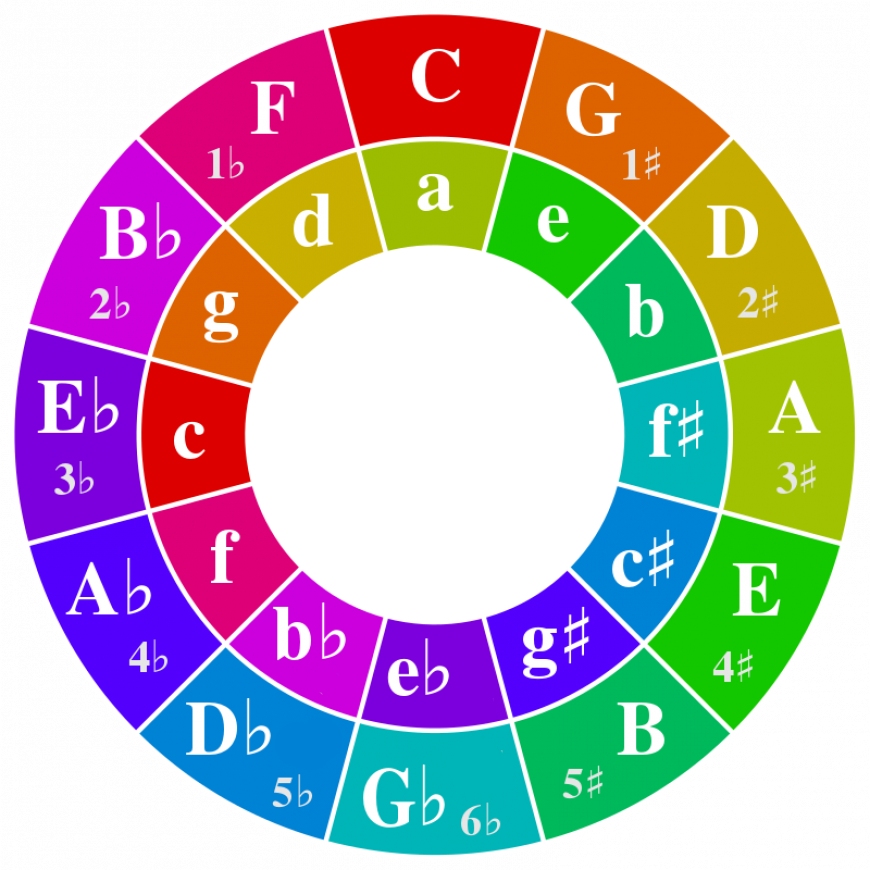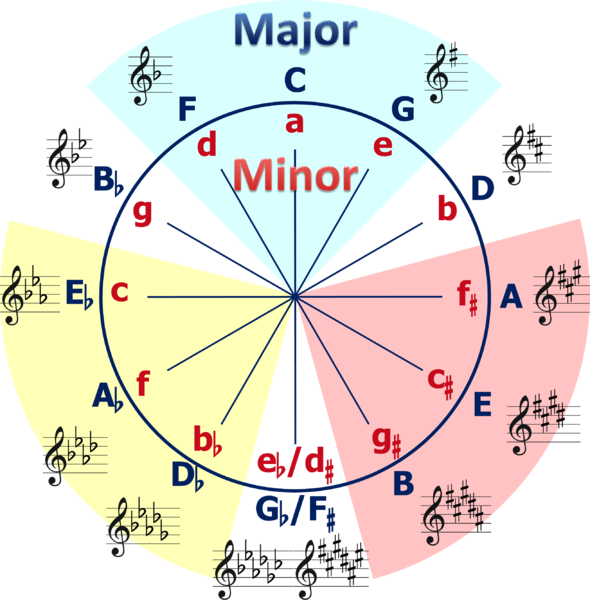Music Theory for Guitarists

It’s common for guitarists to learn by ear, by mimicking their teacher, or from TAB. Players can improvise, write songs, and perform without having a clue about music theory or notation. Some don’t mind staying in the dark about the inner workings of music, and that’s fine. However, many of us get curious about music theory at some point. If that spark strikes you, don’t hesitate to seize the opportunity and start learning. Investing just a little time in the fundamentals can transform the way you see and hear music and open up new avenues for your playing.
Think independently
The guitar can seem like a mysterious instrument to a beginner, with little rhyme or reason - six strings, too many frets to count, multiple ways to play a single note or finger a single chord. Chord names and shapes seem cryptic and arbitrary (G7, bº, em9, Asus2, etc). Scale patterns that fit beautifully over one chord progression sound like a train wreck over another. Using theory, we can construct chords and find appropriate scales intuitively, without limiting ourselves to the diagrams and resources we happen to have on hand. What’s more, we can invent new variations and voicings that best capture the sound we’re seeking, and evolve from a copier into a creator.
A little goes a long way
You don’t need a college-level theory course to make sense of the guitar. It takes little time to learn some basics, and from there you start to see patterns everywhere. Within a few months, you can learn to find any note, anywhere on the guitar. From there you can understand how to construct chords and find a few different versions of a single chord. This isn’t dull book work - it’s sitting with your guitar and working through puzzles, and many students find it fun. The more we play around, the more adept we become, and the better we understand what we play.
Theory is a language in which you think
Whether you’re most passionate about learning new songs, improvising solos, or song-writing, music theory gives you a language to think in. With that language, you can describe complex musical  information concisely and easily. To illustrate, imagine that you’re brand new to a city. Getting from one place to another is a series of turns, stops, landmarks, and distances that are confusing and hard to memorize. Once you know some street names and reference points, it gets a bit easier. And once you really know the area, a simple phrase like ‘go to the bank’ is all the information you need. What’s more, you’ll know plenty of ways to get to the bank and can choose the one that suits you best in the moment.
information concisely and easily. To illustrate, imagine that you’re brand new to a city. Getting from one place to another is a series of turns, stops, landmarks, and distances that are confusing and hard to memorize. Once you know some street names and reference points, it gets a bit easier. And once you really know the area, a simple phrase like ‘go to the bank’ is all the information you need. What’s more, you’ll know plenty of ways to get to the bank and can choose the one that suits you best in the moment.
Similarly, without music theory, a melodic idea is a long strand of string and fret combinations. With basic fretboard knowledge, you can describe strings and frets more concisely with note names. Further down the road, you can summarize complex musical phrases with basic and succinct musical vocabulary. You’ll learn faster, remember more permanently, and be able to focus your energy on expressing yourself rather than remembering.
You don’t have to read notes
Music theory doesn’t have to go along with music notation. If you have no use for reading music in your genre, guitar-focused theory knowledge will still be a big help! A good teacher can adapt your theory curriculum to keep your focus on the guitar and off the page.
How to get started
If you’re excited to begin your theory education right away, Lessonface teacher Francesca Simone is teaching a 4-session group class on ‘Modes and Theory’ for guitarists. It starts February 9th, but you can join at any point and access videos from earlier classes. This is a great way to get your feet wet in the theory world with expert guidance.
One-on-one lessons are another great way to learn music theory. A private teacher can craft your theory curriculum so that it suits your needs and interests best. Here are the Lessonface instructors who teach the subject.
Check out this forum thread on music theory, where teachers and students have been discussing resources for self-study and how theory knowledge improves one’s playing. We’d love for you to jump in with your own resource recommendations and perspectives!
Illustration of circle of fifths by Naught 101
Click here for more Guitar Classes and Tutorials
Click here for more Music Theory Classes and Tutorials




